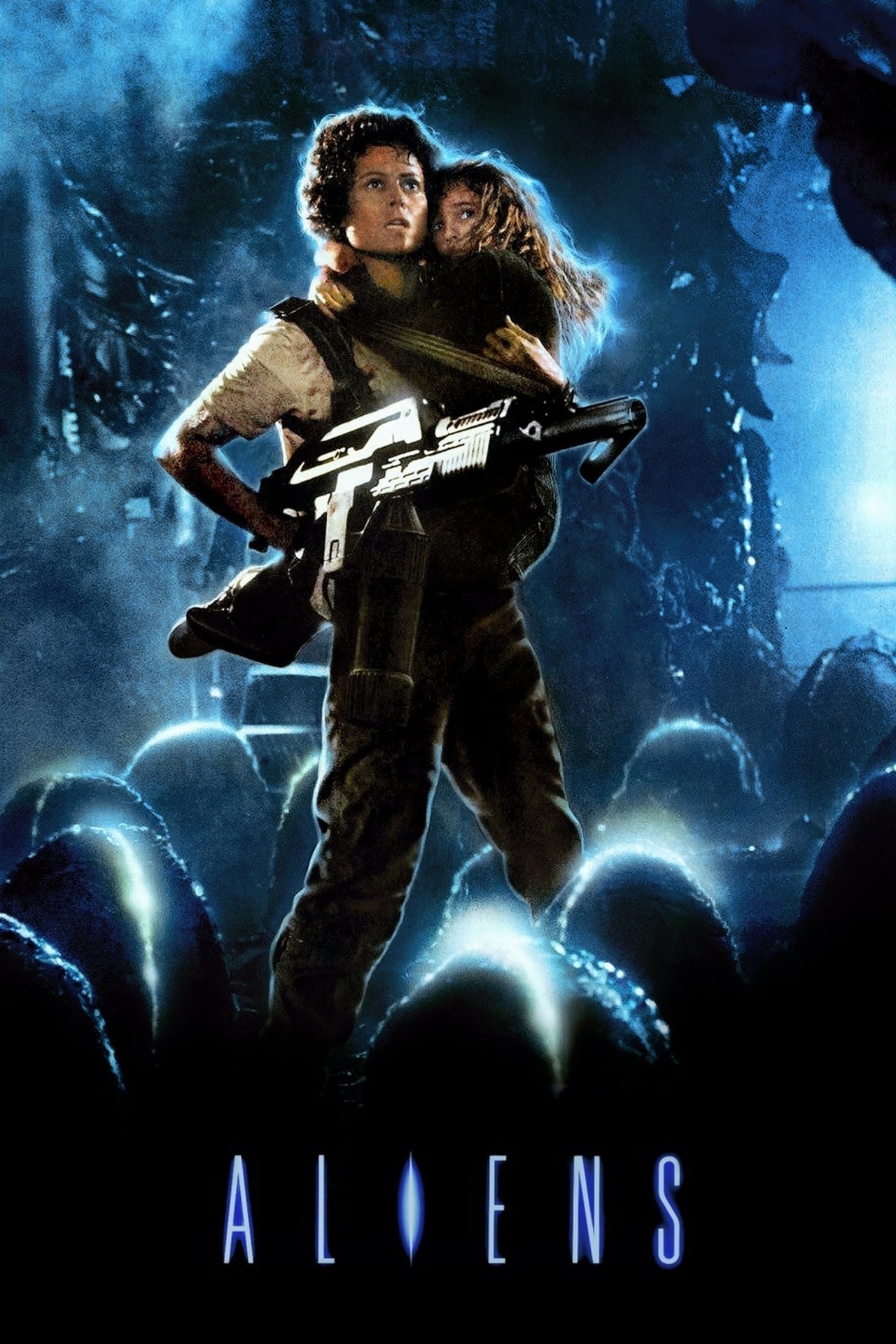Aliens, blasted into theaters in 1986, just over 35 years ago. The film was directed by James Cameron (Titanic, True Lies) and starred the iconic Sigourney Weaver. The film picked right up where its predecessor, Alien, left off. The franchise would continue to redefine the science fiction/horror
Ridley Scott’s Alien is an outstanding horror classic that terrified audiences with the now-legendary “xenomorph” alien. This was famously created by designer/artist H.R. Giger. It scratched the surface of thematic elements, including the struggles faced by women in positions of power and nefarious corporate weapon
Cameron’s Aliens bravely dives
Synopsis
After surviving a brutal encounter with the xenomorph in Alien, Ripley has been rescued. She now finds herself in a dead-end situation. Surviving the previous debacle has made her more of a liability than a hero in the eyes of the powers that be. Plus, her pleas to be believed go unheard.
Despite her years of experience in the field, Ripley is soon forced to work a blue-collar job. She becomes quite capable with skills that are considered beneath her stature and experience as a Lieutenant.
When communications from the terraforming colony on the moon LV-426 (where Ripley’s previous mission went sideways) go radio silent, she is sent in as a special advisor. Accompanying her investigation is a group of tough Marines. From here, the film splits almost entirely from the beats of the original Alien.
The film is now morphing into an epic survival adventure on a grand cinematic scale. This is James Cameron doing what the director does best. That includes tipping his hat to women as powerful characters in his films, like. Such as Sarah Connor in Terminator 2: Judgement Day and Neytiri in Avatar.
Analysis
Ellen Ripley, a powerhouse feminist character,
In Alien, Ripley was the second-in-command. She did her best to prevent the catastrophe that ensued. However, time and time again, she was overruled by the men who were around her. This point is not forgotten in Aliens.
Ripley has been dealt a shitty hand in life, without doing anything wrong. This is a great formula for creating a strong character that elicits audience sympathy. Of note, Ripley’s character is much better developed in the extended Special Edition of the film, also known as “The Director’s Cut.”
Cast
Nevertheless, Weaver’s ground-breaking performance earned her an Academy Award nomination and a Golden Globe nomination for Best Leading Actress. Ripley steps up to the mission and joins a new crew. The character is continuing to prove her courage, grit, and compassion in the face of monstrous adversity.
A team of robust Marines is employed for the mission, with stand-out performances by the late Bill Paxton as Private Hudson, Michael Biehn as Corporal Hicks, and Al Matthews as the gruff Sergeant Apone. If you ever wondered where the phrase, “Game over, man, game over!” comes from, you can thank Paxton’s mouthy Hudson for that.
The team is also joined by Carter Burke (Paul Reiser), a representative of the Weyland-Yutani Corporation. He’s also the owner of the colony’s terraforming assets. We are also introduced to Bishop (Lance Henriksen), the surprisingly loyal android who eventually wins over Ripley’s trust.
Themes
These support characters balance out the male/female dynamics in Aliens. Though it is interesting to note that Ripley emerges as the alpha among the male crew members. Not to discount the two female Marines who join the fray, but even their characters are played with stereotypical masculinity.
Vasquez (Jenette Goldstein) is hypersexualized as more male than female. This is confirmed from a quick line of dialogue by another marine early in the film. We barely see the other woman on the mission, Corporal Ferro, as she doesn’t last long once the danger starts to ramp up.
Character development extends even to the aliens in Aliens. Without giving too much away, Ripley isn’t the only alpha female to contend with on LV-426. We are introduced to a new facet of the space creatures. A facet that further elaborates on the power of women-specific maternal instincts.
The central theme and premise that is delivered to the viewer in Aliens is essentially, how far will Ripley go to protect her own, and what kind of adversary is willing to meet her on the same paternal level?
The final action sequences of Aliens are some of the most timeless scenes in cinematic history. This is thanks to incredible practical effects and sound design. Viewers are treated to a thrilling experience. The film also won Academy Awards for Best Visual Effects and Best Sound Effects Editing. It’s outstanding work, and it stays with you long after viewing.
Weyland-Yutani
Though the feminist message certainly stands out in Aliens, there are also overlapping themes about the corruption of corporate power. The Weyland-Yutani
Even the powerful Marines are simply considered hired goons to Weyland. Along with Ripley, they are part of an overarching conspiracy to use the aliens as profitable assets. First introduced in the original Alien, this plot point is hammered home in Aliens and continues through all the descendants of the franchise.
This includes the Alien vs Predator spin-offs and the reincarnations of Ridley Scott’s original visions; the polarizing Prometheus and Alie
Conclusion
Aliens also kicked off what is commonly referred to as “The Alien Saga.” This spurred endless comic books, video games, and a 2002 documentary of the same name. If the sequel had not been so genius, the world might have never known the rich lore that sprang from the initial concept.
It’s considered common knowledge that a crappy sophomore effort by a filmmaker will kill any chance of a series reaching true greatness. However, thankfully, James Cameron’s knack for going big and smashing it out of the park has made Aliens a common favorite of the expansive franchise.
